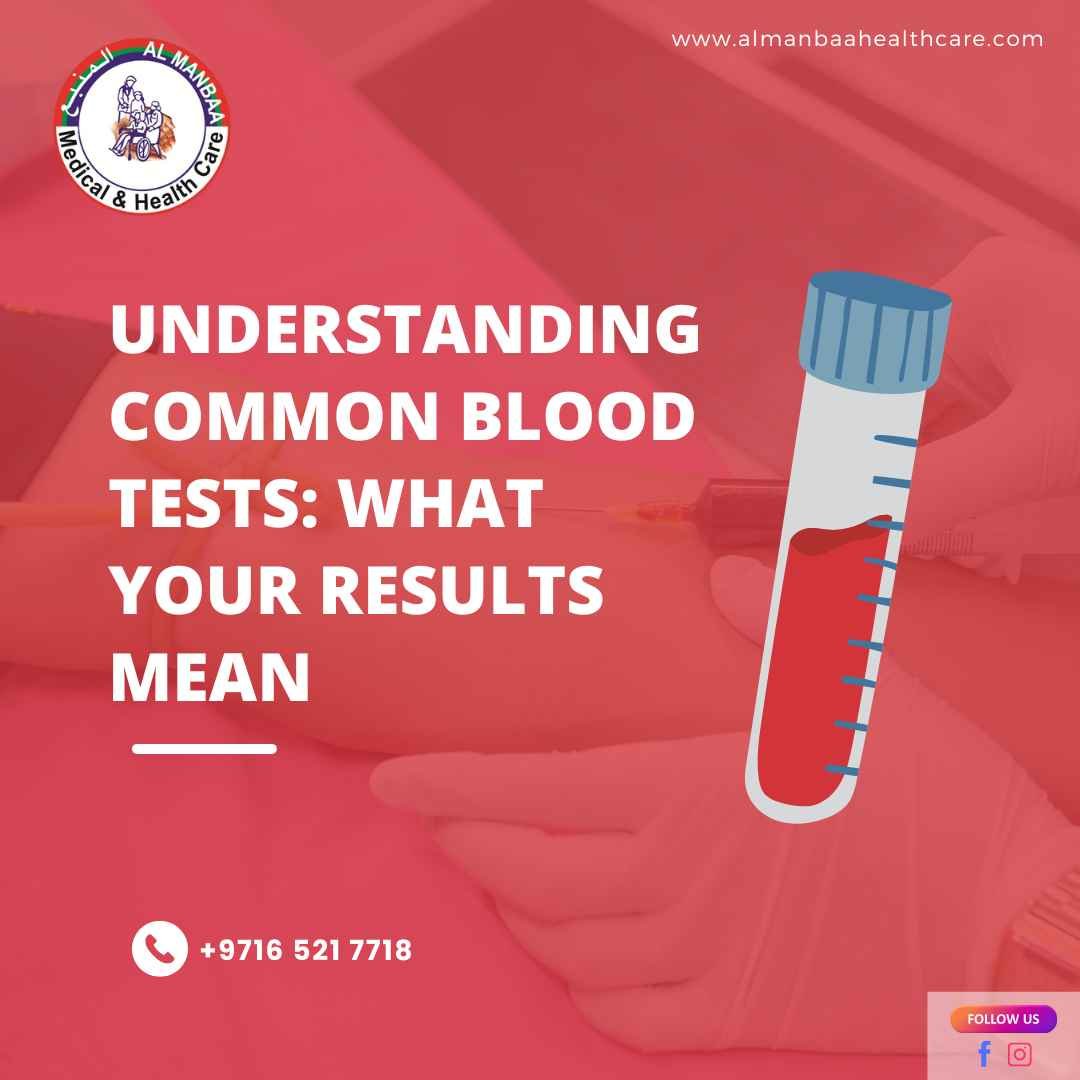


Blood tests are essential tools in modern medicine, providing a wealth of information about your health. Interpreting these results can sometimes be challenging, but gaining a basic understanding can help you take control of your health. This blog will explain some of the most common blood tests and their implications.
1. Complete Blood Count (CBC)
A Complete Blood Count (CBC) is a fundamental blood test that evaluates overall health by measuring various components of blood:
Red Blood Cells (RBCs): These cells transport oxygen from your lungs to the rest of your body. An abnormal count can indicate conditions like anemia or dehydration. White Blood Cells (WBCs): These cells are crucial for fighting infections. Elevated levels often point to an infection, while low levels may suggest issues like bone marrow problems. Hemoglobin: This protein in RBCs is essential for oxygen transport. Low hemoglobin can be a sign of anemia. Hematocrit: This measures the proportion of blood made up of RBCs. Abnormal levels can indicate anemia, dehydration, or other health issues. Platelets: These small cells play a key role in blood clotting. Low platelet counts can lead to bleeding problems, while high counts can increase the risk of clotting.
2. Basic Metabolic Panel (BMP)
The Basic Metabolic Panel (BMP) assesses various chemicals in the blood, providing insight into your body's metabolic functions:
Glucose: This measures blood sugar levels. High glucose levels can indicate diabetes or prediabetes. Calcium: Essential for bone health and muscle function, abnormal calcium levels can indicate issues with the kidneys, bones, or thyroid. Electrolytes: These include sodium, potassium, bicarbonate, and chloride, which are vital for maintaining fluid balance, nerve function, and muscle function. Kidney Function: BUN (blood urea nitrogen) and creatinine levels help assess kidney function.
3. Comprehensive Metabolic Panel (CMP)
The Comprehensive Metabolic Panel (CMP) includes all BMP tests plus additional ones, offering a broader view of metabolic health:
Albumin and Total Protein: These proteins are crucial for various body functions, including tissue repair. Abnormal levels can indicate liver or kidney disease. Liver Enzymes: ALT (alanine aminotransferase) and AST (aspartate aminotransferase) levels help assess liver function. Elevated levels can indicate liver damage. Bilirubin: Produced during the breakdown of red blood cells, high bilirubin levels can suggest liver disease or bile duct problems.
4. Lipid Panel
A Lipid Panel measures fats in the blood, helping assess heart disease risk:
Total Cholesterol: This measures the overall cholesterol in the blood. High levels increase heart disease risk. Low-Density Lipoprotein (LDL) Cholesterol: Known as "bad" cholesterol, high LDL levels can lead to artery plaque buildup. High-Density Lipoprotein (HDL) Cholesterol: Known as "good" cholesterol, HDL helps remove LDL from the arteries. Higher levels are generally beneficial. Triglycerides: A type of fat in the blood, high levels can increase heart disease risk.
5. Thyroid Function Tests
Thyroid function tests evaluate how well the thyroid gland is working:
Thyroid-Stimulating Hormone (TSH): This hormone regulates thyroid hormone production. Abnormal levels can indicate an overactive or underactive thyroid. Free T4 and Free T3: These are the active forms of thyroid hormones. Abnormal levels can signal thyroid dysfunction.
Conclusion
Understanding blood test results is vital for managing your health. Discussing your results with a healthcare provider ensures you get a comprehensive interpretation tailored to your specific situation. Regular blood tests, alongside a healthy lifestyle, can help you maintain optimal health and catch potential issues early.
If you have questions or concerns about your blood test results, don't hesitate to reach out to your healthcare provider. They can offer the guidance you need to make informed health decisions.